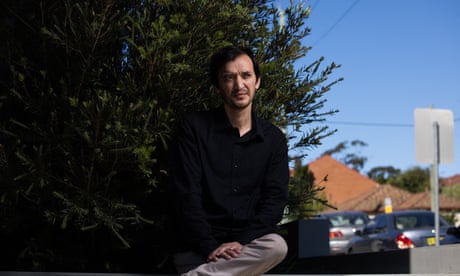Sajjad Askary
The Guardian
Joy flooded my heart as I finally welcomed my mother, sister and niece in Melbourne last week after 13 years of family separation as a refugee in Australia.
But I feel deep pain when I remember the day Islamist extremists killed my father, who was working as a labourer on a construction site. He was killed because of his ethnic identity as a Hazara.
Despite her immense grief, my mother became our family’s anchor. She raised us with unwavering strength amid the constant struggles and pain that came our way. Her love and determination fuelled my passion, leading me to become an aspiring lawyer and advocate for human rights, refugees and minorities.

After arriving in Australia by boat, I spent 13 years separated from my family, facing travel restrictions and a life of limbo with little hope. However, we are finally reunited after enduring unbearable pain and countless tears. Stepping on to Australian soil, my family found hope and the promise of a new home, despite leaving everything behind.
My two brothers came as refugees and have lived in Australia for over a decade. They pay taxes, have built transport and restaurant businesses and have created jobs through their entrepreneurship.
Australia has become a beacon of hope for Hazaras, where we can rebuild our lives and make a new home. In our short history in Australia, the rising generation of Australian Hazaras – thriving professionals, doctors, figures in academia, construction workers, social workers, lawyers and advocates for human rights, democracy and social justice such as myself – have found creative ways to contribute and give back to our communities. With the freedom to live without fear of being killed, Hazaras can help to “rejuvenate and transform” Australia’s economy and communities.
However, the situation remains devastating for the Hazaras in Afghanistan and Pakistan. Hazaras started migrating to Australia in the late 1990s, fleeing decades of what some have called relentless and genocidal violence. Since the return of the Taliban to power in August 2021, Hazaras have been subjected to systematic violence while attacks continue unabated. Hazaras have been suppressed in all aspects of their lives in Afghanistan and further pushed into marginalisation.
It has become increasingly difficult for the Hazaras to mobilise due to heightened security threats and continuous attacks. They have therefore used cyberspace and social media to raise awareness through demonstrations and advocacy for their safety, justice and human rights.
While my mother and sister are lucky to now live safely in Melbourne, women in Afghanistan are more at risk, facing multiple layers of vulnerability due to their gender, ethnic identity, religion and liberal values and for their support for democracy, inclusivity and human rights, making them particularly susceptible to discrimination and violence.
As an Australian Hazara, I am indebted to Australia for its generosity to my family. From personal experience, I am familiar with the systematic violence Hazaras are facing. This is why we, the Australian Hazaras, through the Parliamentary Friendship Group for Hazaras (PFH), are urging parliament to pass a motion to recognise the ongoing escalating systemic violence, discrimination, dispossession and what we deem genocidal threats against the Hazara people and other highly vulnerable groups.
We ask our government to work with the Australian Hazara community to ensure aid is delivered equitably and non-discriminately, pressure the Taliban to protect the Hazaras and provide continued asylum places for Hazaras and other persecuted and marginalised groups. Doing so will uphold our Australian values.
In the meantime, my mum, sister and niece have found a welcoming home in Australia, settling in smoothly and already embracing their new life. They have been warmly received by the Australian Hazara community, who are showing immense support and offering to help them with integration.
With access to education and healthcare, my family will gradually adapt to their new surroundings. Through their resilience and our support, their new life in Australia is filled with hope, opportunity and the promise of a brighter future.
 Afghanistan Peace Campaign
Afghanistan Peace Campaign